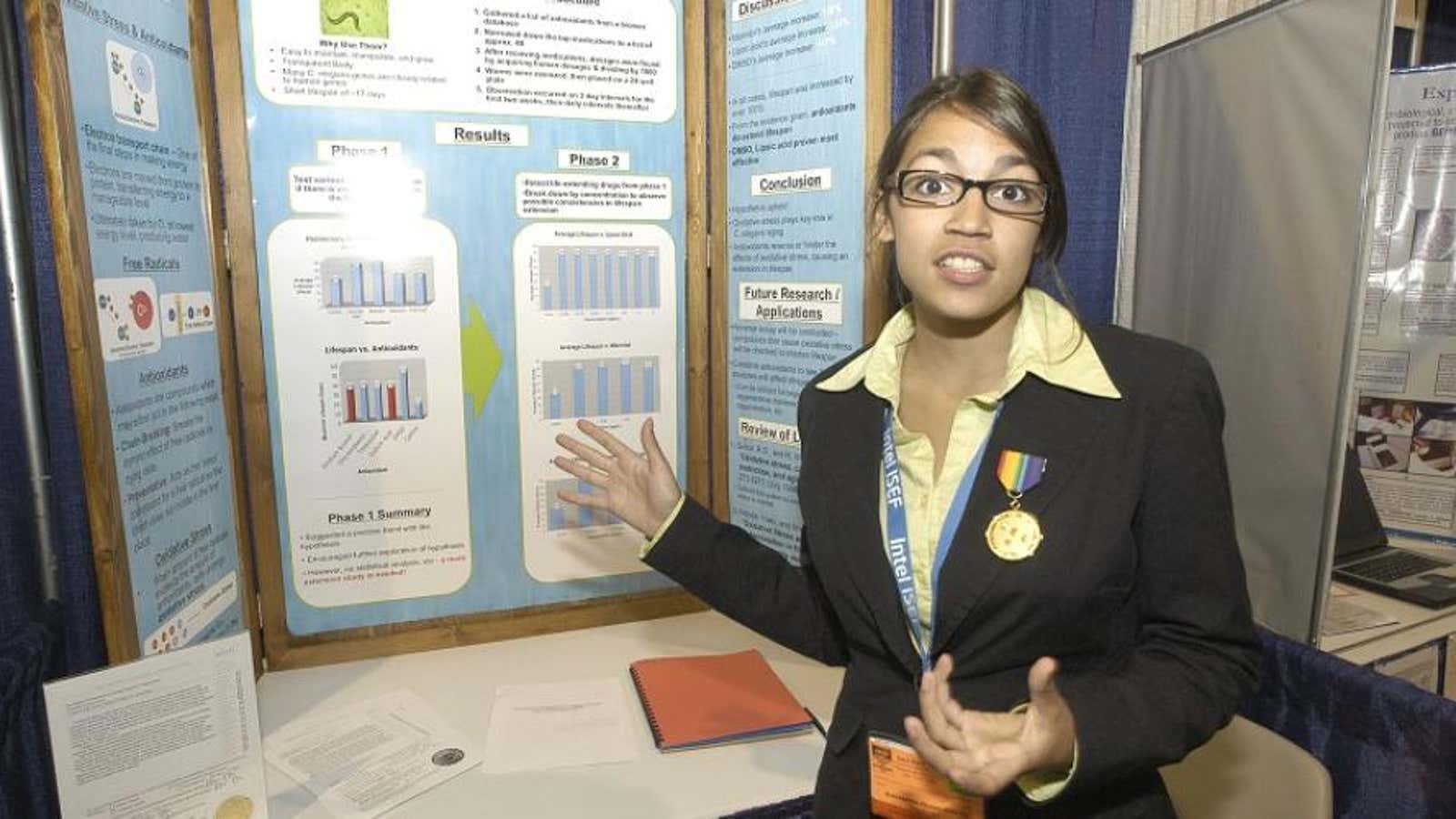Newly elected lawmaker Alexandria Ocasio-Cortez is known for being the youngest woman ever voted into Congress, speaking up for immigration reform, and pushing for Democratic socialism.
She knows how antioxidants affect roundworm longevity, too.
In 2007, Ocasio-Cortez won a prize at the Intel International Science and Engineering Fair in microbiology. The ISEF isn’t your standard panorama-filled science fair: It’s the largest pre-college scientific research event in the world. She entered in her senior year of high school with a project on Caenorhabditis elegan (C. elegan) lifespan extension, with her findings indicating that “antioxidants could potentially help prevent degenerative illnesses induced by oxidative stress.”
“Alumni of the International Science and Engineering Fair… have gone on to create major companies, win the Nobel Prize, and now Alexandria Ocasio-Cortez has become the youngest member of Congress,” said Maya Ajmera, president and CEO of the Society for Science & the Public, and publisher of Science News.
“We expect that the lessons she learned during ISEF—the importance of evidence-based science, clear communication and team work—will translate well in her work on Capitol Hill.”
Under US president Donald Trump, science issues haven’t fared too well. In the past two years, the administration has pulled out of the Paris Agreement, cut the budget for the Centers for Disease Control (paywall), and put Scott Pruitt, a climate-change skeptic, in charge of the Environmental Protection Agency—the very organization he spent his career filing lawsuits against. (He resigned in July.)
Ocasio-Cortez will likely be a STEM advocate in Congress. The New York Democrat is a self-described nerd who hoped to be an obstetrician-gynecologist when she was a teenager and was a science major in college before switching to economics and international relations.
If her high-school microbiology career is anything to go by, America can now count on her being a strong voice for science in Congress.
Looking for more in-depth coverage from Quartz? Become a member to read our premium content and master your understanding of the global economy.
